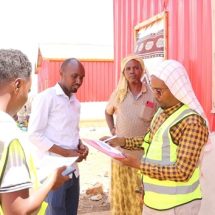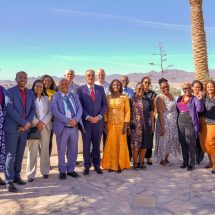In Ndililwa village in Chamuka Chiefdom, a two and a half hour drive from Lusaka city, Zambia lives a young man of 32 years, Chilando Mwansa who owns a thriving fish farm. Chilando’s fish farm sits on seven hectares of land and is made up of three ponds where he breeds tiger fish for sale. This young man’s life has changed gradually for the better compared to four years ago when Chilando who was considered too young to own land and had no means to make a living. Fast-forward to 2018 September, he now has an increasing income of between USD 2500-3000 annually from selling his fish in the market and to the local community in Chamuka. This change is all because he now has tenure security.
Chilando heard of the Zambia, People’s Process on Housing and Poverty (PPHPZ) and Zambia Homeless and Poor People’s Federation (ZHPPF) initiative on implementing the Social Tenure Domain Model (STDM), in 2016.
As a young man, he was curious to find out how he could be involved. Thorough a series of interactions with the community and the PPHPZ/ZPPF alliance, Chilando participated in the STDM training and became knowledgeable in conducting enumeration, mapping land boundaries and data analysis. During this time, he heard of an initiative driven by the Ministry of Livestock and Fisheries in which the government was supporting the youth on aquaculture.
To participate, one had to have a farm which Chilando did not have. This however did not deter him from approaching His Royal Highness Chief Chamuka VI to express his need for a piece of land within Chamuka to carry out this project which would give him financial independence and increase food security for him, his dependents and the Chamuka community.
After due diligence was carried out which involved availing documentation at the Chief’s Palace such as his identification details, Chief Chamuka utilized the STDM generated maps to identify a seven-hectare piece of land in Ndililwa village which he granted Chilando for the fish farm. Chilando was then issued with a certificate of customary land occupancy, in his name.
Chief Chamuka continues to work with GLTN/UN-Habitat, PPHPZ, ZPHF and the Zambia Ministry of Lands and Natural Resources as an advocate and champion for land rights to provide customary land occupancy certificates for his people, especially women in the 208 villages of Chamuka Chiefdom.











